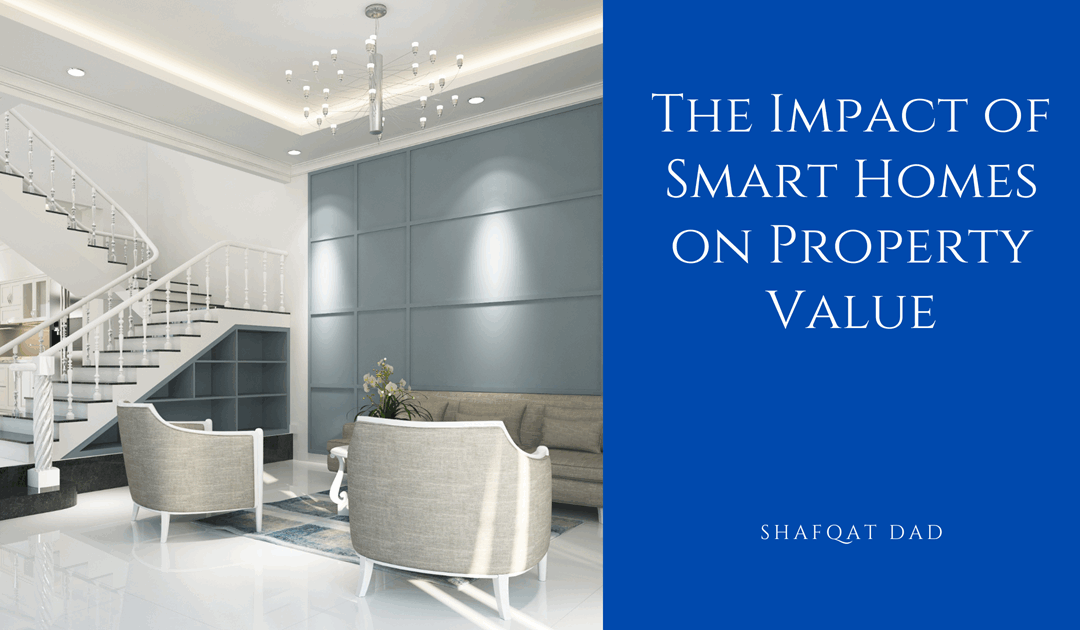Smart home technology is no longer a futuristic concept—it’s a fast-growing feature that’s becoming a major selling point in real estate. From smart thermostats and lighting systems to voice-controlled assistants and advanced security solutions, these tech upgrades are reshaping how people live and how much they’re willing to pay for a home. As demand for connected living continues to rise, smart home features are having a significant impact on property values across the market.
Buyers today are looking for convenience, efficiency, and safety. Smart home technology delivers all three by allowing homeowners to control various systems remotely or through automation. Devices like programmable thermostats, smart locks, surveillance cameras, and app-controlled lighting not only make daily life easier but also enhance a sense of control and peace of mind. Homes that offer this level of interactivity often stand out in listings and attract more attention, giving sellers a competitive edge.
One of the most tangible benefits of smart technology is energy efficiency. Features such as smart thermostats, lighting systems, and appliances can significantly reduce utility costs by optimizing usage based on behavior and real-time conditions. This energy-saving potential is attractive to eco-conscious buyers who are seeking long-term savings and reduced environmental impact. Homes equipped with energy-efficient technology are often perceived as more modern and desirable, which can translate into higher market value.
Security is another area where smart home features boost property appeal. Smart doorbells with video capability, motion sensors, alarm systems, and automated door locks offer an added layer of protection that buyers appreciate. The ability to monitor a property remotely through a smartphone increases perceived safety, especially for families, frequent travelers, and high-net-worth individuals. A strong security system adds value not only in terms of property worth but also in terms of emotional peace of mind.
As smart homes become more mainstream, app-based integration is becoming an expectation rather than a luxury. The ability to control lighting, music, temperature, and even appliances from a single interface is a significant convenience that enhances lifestyle quality. This high level of customization allows residents to tailor their environment to their preferences, creating a more personalized living experience. Such functionality often commands higher prices in both rental and resale markets.
For sellers and real estate agents, highlighting smart home features in marketing materials can result in faster sales and better offers. Listings that showcase smart upgrades tend to generate more interest, especially among tech-savvy buyers or millennials who expect modern amenities. Professional photos and virtual tours demonstrating how the technology works can add depth to the listing and help buyers envision the added value.
Investors and landlords are also benefiting from smart home adoption. In rental properties, features like smart locks and keyless entry improve convenience and security for tenants while reducing the need for physical keys and manual check-ins. Smart thermostats can help landlords regulate energy usage between tenants, cutting down on costs. These small efficiencies can improve profitability and attract high-quality tenants willing to pay more for tech-enabled convenience.
While the value-added potential of smart homes is clear, it’s also important to consider compatibility and user-friendliness. Not all smart systems are equal—some require complex installations or subscriptions, which could deter certain buyers. Simpler, more intuitive systems with broad compatibility across devices are more likely to add value without adding headaches. Ensuring that the technology is easy to use and well-maintained is essential for maximizing its appeal and long-term utility.
Another aspect to consider is future-proofing. The world of smart technology is constantly evolving, and buyers may be concerned about obsolescence. Properties that feature systems with regular updates, open platforms, or modular components that allow for upgrades will retain value better over time. Highlighting the adaptability of these systems can reassure buyers and further increase their willingness to invest.
Local market conditions also influence how much value smart home features add. In tech-forward cities or high-demand neighborhoods, smart upgrades may contribute significantly to property premiums. In areas where traditional preferences still dominate, the impact may be more modest. However, the broader trend is clear: as smart technology becomes more accessible and expected, it will increasingly influence real estate valuations.
In a competitive housing market, smart home technology offers a way for properties to stand out and command higher prices. It caters to a growing desire for convenience, safety, and efficiency, while also reflecting broader shifts in how people live and interact with their environments. As the demand for connected living continues to rise, smart homes are not just changing lifestyles—they’re changing the value equation in real estate.

